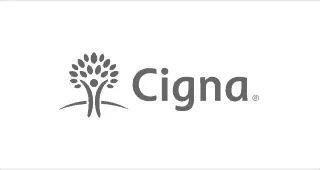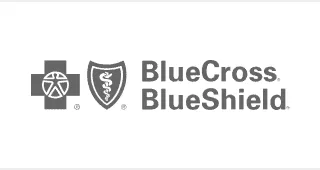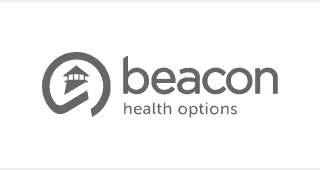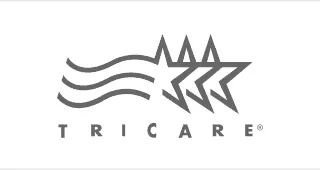What You Need to Know About Opioid Addiction
Fentanyl, OxyContin, Percocet, Vicodin, Nitzenes, and Heroin. All different forms of the same pleasure-inducing poison behind a terrifying trend of overdose deaths in New Jersey that’s continued for over 20 years now.
Whether you are a worried parent or loved one of someone addicted to opioids or you are wrestling this demon yourself—-you owe it to yourself to be armed with the facts about this serious problem and, more importantly, the solution to it, opioid addiction treatment.
What to know about opioids and opioid addiction:
- Opioid addiction is a disease, not a moral failing or lack of willpower.
- Addiction is a chronic illness that can’t be cured, but it can be managed.
- Recovery from opioid addiction is a lifelong process but comes with many rewards.
Dual-diagnosis opioid addiction treatment builds a solid foundation for recovery.
What Are Opioids and Why Are They Addictive?
Opioids are a class of drugs that bind to opioid receptors in the brain. Essentially, they ‘hijack’ the brain’s reward system. The parts of the brain that release small amounts of dopamine (a pleasure-inducing neurotransmitter) to reward certain behaviors. In nature, we are rewarded with dopamine from things like exercise, sex, a delicious meal, listening to music we love, or even sunlight exposure.
Opioids cause both physical dependence and psychological addiction. Note that these are two different phenomena but often occur together.
When our bodies become used to the presence of opioids, a few things happen, but the most important ones are:
- The body becomes dependent on opioids and starts producing less dopamine and other key neurotransmitters. When that happens, a person develops a tolerance, which means they need more and more fentanyl, heroin, or another opioid to achieve the same feeling. Eventually, they need opioids to avoid becoming physically sick. This “physical addiction” is known as chemical dependency.
- The mind becomes obsessed with getting and using opioids. Opioid addiction derails the brain’s normal, healthy reward system. The drug eventually becomes more important than almost anything else. School, a job, taking care of your body, people you love, even maintaining shelter and food for yourself. You will continue to pursue and use fentanyl, Oxys, or any other opioid even after you face negative consequences. This is addiction.
Opioids vs Opiates: What is the Difference?
although these two terms are sometimes used interchangeably, they mean slightly different things, and it’s helpful to know the difference.
What are Opiates?
Opiates are naturally occurring compounds derived from the opium poppy plant. Examples include opium, heroin, morphine, and codeine.
What are Opioids?
Opioids are drugs that act primarily on the brain’s opioid receptors. They include natural compounds like heroin and morphine. They also include semi-synthetic drugs like oxycodone and synthetic opioids like fentanyl.
All opiates are opioids, but not all opioids are opiates.
The simplest thing to do is just to use the term opioids unless there’s a good reason to specify only drugs that are derived directly from the opium poppy (opiates).
Symptoms vs. Signs of Opioid Addiction
The symptoms of opioid addiction refer mainly to physical reactions, like itchy skin or excessive drowsiness which may or may not be observable. Signs of opioid addiction indicate behaviors and predicaments that someone who is addicted to opioids might display. You can think of them as “red flags” for possible addiction in general (not necessarily to opioids, though).
Symptoms of Opioid Addiction
Here is a list of symptoms that may indicate a person is addicted to opiates. If you observe 2 or 3 or more of these signs with some regularity, it is probably worth investigating, especially if these opioid abuse symptoms are combined with behavioral signs of addiction.
Opioid Abuse Symptoms:
- Dilated pupils
- Runny nose
- Muscle aches
- Constipation
- Sleepiness/nodding out
- Itchy, flushed skin
- Slowed or shallow breathing
- Nausea and vomiting
- Restlessness and agitation
- Cramps and diarrhea
Signs Someone May Be Addicted to Opioids
Much like the symptoms above, there can be an innocent explanation for most of these signs in isolation. Look at the whole picture and take any signs you see in context. Beware of denial. Don’t refuse to believe someone is using drugs simply because you don’t want it to be true. It’s always better to have that awkward conversation or even a confrontation, if necessary, than it is to ignore warning signs.
Possible Signs of Opioid Addiction:
- Increasing isolation
- Unexplained weight loss
- Pale complexion
- Needle/track marks
- Unusual bruising
- Irritability/grumpiness
- Loss of interest in activities once enjoyed
- Secrecy about new friends or activities
- Stealing money or valuables
- Running out of money unexpectedly
- Frequent doctor visits or “doctor shopping”
- Neglecting responsibilities at work, home, or school
- Mood swings (grouchy or euphoric)
- Impulsive actions or decisions
- Engaging in risky behaviors
- Downplaying opioid use
Achieve Wellness and Recovery: Life After Opioids
Achieve Wellness and Recovery has been committed to providing the most effective opioid use disorder (OUD) treatment in New Jersey since the day we opened. We take addiction personally. Our lives have been touched by it, too. We know the pain and heartache—but we also know hope and have seen miracles. We continuously enhance our evidence-based addiction treatment based on new research and, more importantly, the success we witness among the people we help.
If you or a person you love is struggling with addiction, we’re here to listen and help. For us, this is more than just a job—-it’s a calling. We’re ready to help when you’re ready to call.
Reach Achieve Wellness and Recovery at (833) 680-0142
Click here to learn how our New Jersey drug rehab can work with your insurance.
We work with most insurance companies. Please note we are not affiliated with or endorsed by insurance companies.
No Medicaid Accepted.

















